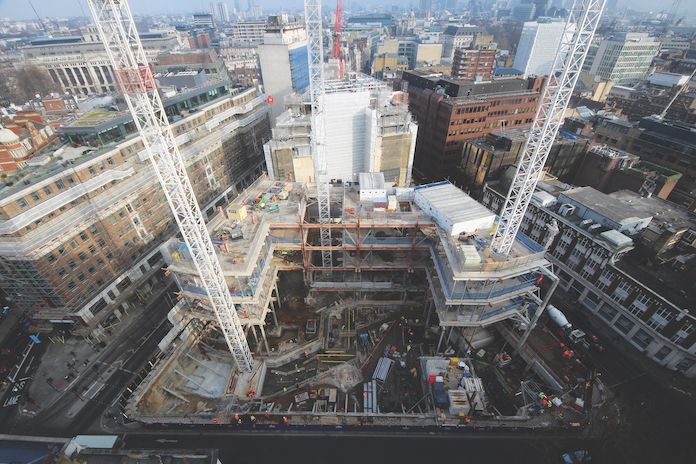Is Britain’s construction sector struggling with capacity ?
A new report has indicated that Britain’s construction sector is struggling with capacity and workforce issues, according to the Public Accounts Committee.

The report, titled “Delivering value from government investment in major projects” states the obstacles faced with major infrastructure projects.
The first is a skills shortage.
The report reads:
“Skills shortages in specific trades such as welding are already being seen but design and project management skills are also in short supply. Failure to build market capacity could result in higher prices for scarce skills. Too little of the right skills in government has led to an over-reliance on the supply chain, particularly in technical and engineering disciplines.”
The scarcity of project management skills is putting a strain on government departments, who lack the ability to be discerning when assessing project scopes and tenders.
The numbers are stark - 16,000 project professionals are needed to qualify on the government’s leadership programme - but, to date, only 1000 staff have qualified.
What impact is this having on major projects?
Firstly, increased construction costs are pinpointed. If there is such a marked shortfall of qualified and trained staff, it is perhaps inevitable that costs will rise.
Secondly, who is judging the value, effectiveness and efficiency of these colossal civil undertakings?
PAC chair Meg Hillier said:
“Such projects present unique and novel challenges which government must navigate if it is to secure value for public money. Without a robust market for essential skills in place, these are challenges the UK will fail to meet, as shortages push costs up in a globally competitive environment.”
This is not mere political posturing either as the chair’s words of warning are supported by BCIS Chief Economist David Crosthwaite and the head of policy and public affairs at the Association of Project Management, Andrew Baldwin.
David Crosthwaite judges the skills shortage:
“It’s questionable whether this approach represents value for public money. In the UK there is a litany of infrastructure projects that are delivered late and or over budget. Do we learn from the failures of the past? It appears not.”
So what are the major civil construction projects currently in motion in the UK?
We all love a list don’t we? Here’s the top 5 current construction projects in the UK, ranked in terms of “value” (or projected cost).
- Sizewell C Nuclear Power Station due to start in October 24 with a value of £34,800,000,000.
- The Tata Electric Vehicle Battery Factory, scheduled to start this month with a value of £4,000,000,000.
- Thameside West Masterplan, a residential project already started in Victoria Dock with a £3,500,000,000 value.
- The Houses of Parliament, which are sinking and in need of repair, is due to begin in September, with a £3,500,000,000 value. There are rumours that the House of Commons and MPs may need to move to a new venue too.
- And fifth, in Manchester, is a major road resurfacing programme, scheduled to begin in November 2024, at a cost of £3,300,000,000.
These five are just the tip of the construction iceberg, so to speak, and our question to you readers of our blog and those connected with me on LinkedIn, is what can realistically be done to address these very real construction skills shortages?
We await your answers …




